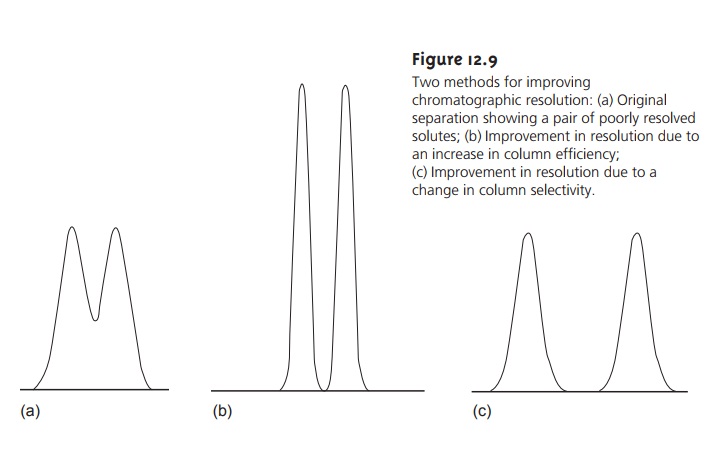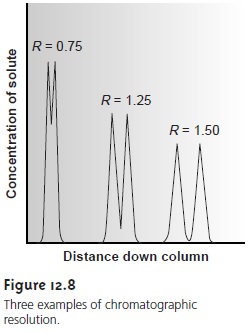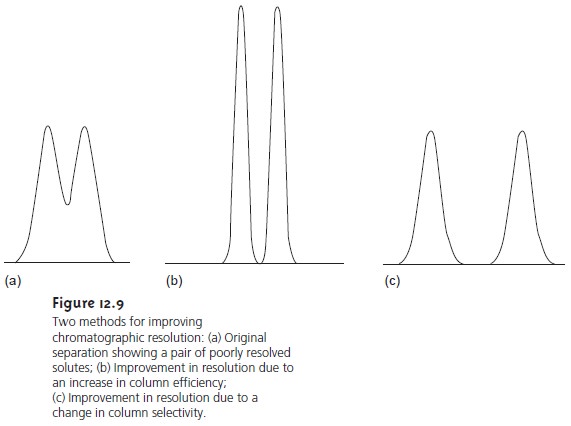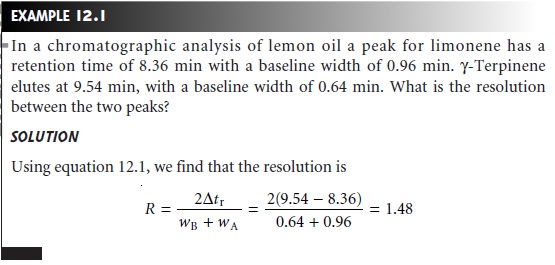Chapter: Modern Analytical Chemistry: Chromatographic and Electrophoretic Methods
Chromatographic Resolution - Theory of Column Chromatography

Chromatographic Resolution
The goal of chromatography is to separate
a sample into a series
of chromato- graphic peaks,
each representing a single component of the sample.
Resolution is a
quantitative measure of the degree
of separation between
two chromatographic peaks, A and B, and is defined as

As shown in Figure 12.8,
the degree of separation between
two chromatographic peaks improves with an increase in R. For two
peaks of equal
size, a resolution of 1.5 corresponds to an overlap
in area of only 0.13%.
Because resolution is a quanti- tative measure of a separationŌĆÖs success,
it provides a useful way to determine
if a change in experimental conditions leads to a better separation.



From equation 12.1 it is clear that resolution may be improved
either by in- creasing Ōłåtr or by decreasing wA or wB (Figure 12.9). We can increase
Ōłåtr by en-
hancing the interaction of the
solutes with the
column or by increasing the
col- umnŌĆÖs selectivity for
one of the
solutes. Peak width
is a kinetic effect associated with the soluteŌĆÖs movement
within and between
the mobile phase
and stationary phase. The effect is governed
by several factors
that are collectively called column effi- ciency. Each of these
factors is considered in more detail
in the following sections.
Related Topics